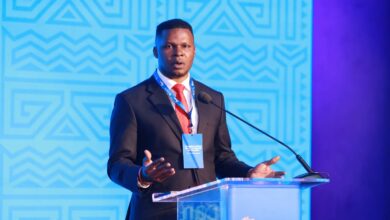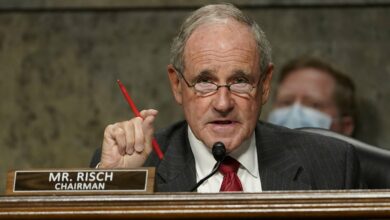In an interview on 9 June with prominent journalist Lamis el-Hadidi on her show “From the Heart of Egypt”, Prime Minister Ahmad Nazif stated that improving education and essential services were top priorities for the government. “Our biggest issue is education, and we have a clear program that will take years to implement,” he said. “We are committed to the reform process, and there is no turning back in our efforts to transform Egypt into a free market economy in which the private sector becomes responsible for providing jobs and investment.”
In the interview, Nazif emphasized that the government wanted improve the relationship between workers and employers. He described the recent series of strikes and protests as a “healthy phenomenon,” asserting that “people have a right to demonstrate in a civilized manner when they feel wronged, and we respond to such demonstrations in a civilized manner.” He pointed to the fact that “of the approximately 60 thousand companies and three million economic institutions active in Egypt, only workers from five or six companies have gone on strike.”
Nazif added, “We listen to those on strike, and we work to solve their problems. For that reason we are trying to systematize the relationship between the worker and his employer by instituting a new bankruptcy law that will protect both the rights of the workers and those of the state.”
On the issue of in-kind aid to Egyptian citizens, he stated, “we work to deliver in-kind support to those who deserve it, for there is a complete agreement over the importance of this type of aid.” However, Nazif alluded to problems with the current in-kind aid system and highlighted the government’s desire to move towards a monetary support system. In this vein, he pointed to the existence of “a program that we have been implementing over the last three years called the Family Card as a replacement of the previous in-kind Food Aid Card program. Eleven million families have now obtained the new card, and we will finish distributing it next month.”
According to Nazif, the Family Card program aims “to provide direct monetary assistance to 20 percent of the population or 3.5 million Egyptian families that are selected through the application of defined criteria.” He noted that such criteria do not include “ownership of a refrigerator or a mobile phone for these criteria are no longer adequate to determine whether someone is impoverished.” Continuing, he said, “The best support system is conditional such that government aid does not destroy initiative by creating dependence on such aid,” pointing to the fact that receipt of assistance under the Family Card program was “conditioned on the recipients meeting health and education related requirements.”
To highlight the inefficiencies related to in-kind aid, Nazif drew attention to the government’s subsidization of liquid propane gas, stating that “each bottle of propane that costs the government LE50 only receives LE2.5.” Nazif added that “most of the propane subsidies are wasted because the propane ends up in the hands of restaurants and brick manufactures who prefer the propane due to its low price,” nothing that making propane subsidies a part of the Family Card program will lead to 30 percent savings for the government, equaling LE6 billion “that could be directed towards things like improving education and health standards.”
As for petroleum subsidies in general, Nazif asserted that there is “a consensus that such government assistance is distributed inequitably.” Nazif noted that he had commissioned the Cabinet Economic Group to develop a plan to end energy subsidies within the next several years, something he said was in the interest of the Egyptian people and that would help preserve economic stability.
When asked about the long lines for government wheat products, Nazif stated that their appearance was a temporary phenomenon that coincided with an increase in world wheat prices. He said that if it “were not for the efforts of the government and the reforms initiated,” the problem would not have been solved.
The prime minister praised the network of social support present in Egypt, asserting that the government was working to make it even better. He stated that the poverty rate is declining in Egypt and currently hovers between 20 and 22 percent, making Egypt better off than many other countries. Pointing to statistics prepared by the Central Apparatus for General Mobilization and Statistics, Nazif noted that in net, two million Egyptians have seen improvement in their living conditions over recent years.
Regarding government services, the prime minister pointed to the fact that spending on social services had increased significantly, explaining that “Egypt can be compared with other countries that are not experiencing a population explosion of the likes occurring in Egypt. There are two million babies born in Egypt every year, and we are tasked with finding a place for them in the schools four years later.”
Nazif asserted that Egypt had inherited the legacy of a large public sector, something which was was being handled with in a number of ways. “A part of it is being privatized, while another part we are trying to improve, through the addition of production lines, for example” Nazif stated. He added, “the market economy does not mean that the state has no role in the production process, and we will maintain ownership of some production lines, historical hotels and banks such as the Egyptian Bank and the el-Ahly Bank. It will keep the parts of its portfolio which it is proud of, like Telecom Egypt, Egypt Air and The Arab Contractors, and will not sell assets related to its national security.”
On the issue of privatization, The prime minister said that it was important to remember that the public sector represented just a small fraction of the Egyptian economy in the first place, employing only 300,000 of the 26 million workers in the country.
As for the government’s budget deficit, the prime minister said, “we are currently running an 8 percent deficit, which we aim to reduce to 4 percent over the next few years,” asserting that the fiscal situation in Egypt “has improved significantly, as the domestic public debt has been reduced from 60 percent to 7 percent even as public spending has increased.”
Responding to a question about why no Egyptian universities were on the list of the 100 best universities in the world, Nazif said, “The comparison is unfair, especially since there is not one free university on that list.”
On the subject of disagreements between the Nile Basin states over water sharing, Nazif stated that Egypt was not in any danger, noting that fruitful discussions were still in progress with these states, which looked to Egypt as an older sibling. Regarding plans by other Nile Basin states to construct dams upstream, Nazif pointed out that they would take a long time to build and would require Egyptian cooperation throughout the construction process.
As for Emergency Law, Nazif emphasized that it would only be applied in the domains of terrorism and drug crime. He stated, “we promise that this law will not be used for any other purpose” pointing to the fact that many prisoners had been released after the latest extension of the law. According to Nazif, “We requested an extension to the Emergency Law even though we detest it, but we have to remember that we live in a dangerous region, where neighboring states are targets of terrorism, just as Egypt was in the past. Every citizen needs to feel safe, so we have to find a balance in this matter.” In this context, Nazif also noted that Egypt had a duty “to protect the investments that it had made exhaustive efforts to attract.”
On the topic of the upcoming presidential elections, the prime minister maintained that “talk of these elections is premature.” Regarding his preference in the elections, Nazif expressed his hope that President Hosni Mubarak would be re-elected “because he has a great deal of experience and makes the concerns of the citizenry his main priorities.” Nazif went on to praise Mubarak’s efforts to encourage investment in Upper Egypt and his career in the armed forces.
Regarding his own future, Nazif stated, “I do not fear leaving my position at all as I have never aspired to obtain political power. My work has been dedicated to bringing about tangible achievements, like when I helped establish the first accounting department in the Engineering College, the National Identity Card project, the Smart Village and the Ministry of Communications. I love to build and that’s where I derive my personal satisfaction,” he concluded.
Translated from the Arabic Edition.




